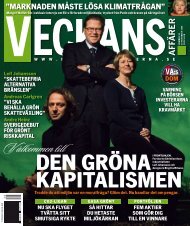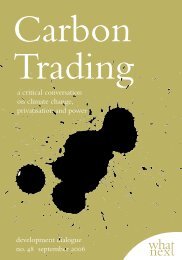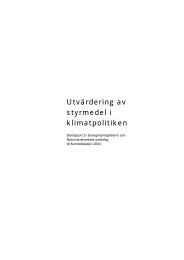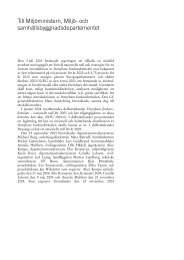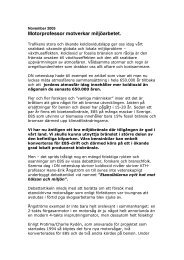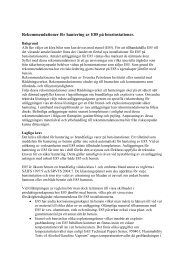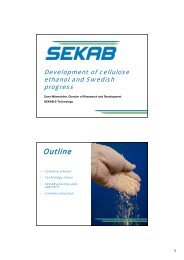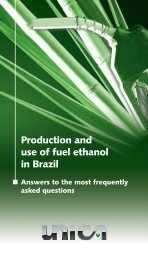Sugarcane ethanol: Contributions to climate change - BAFF
Sugarcane ethanol: Contributions to climate change - BAFF
Sugarcane ethanol: Contributions to climate change - BAFF
You also want an ePaper? Increase the reach of your titles
YUMPU automatically turns print PDFs into web optimized ePapers that Google loves.
Chapter 3<br />
Prospects of the sugarcane expansion in Brazil: impacts on<br />
direct and indirect land use <strong>change</strong>s<br />
André Meloni Nassar, Bernardo F.T. Rudor�, Laura Barcellos An<strong>to</strong>niazzi, Daniel Alves de<br />
Aguiar, Miriam Rumenos Piedade Bacchi and Marcos Adami<br />
1. Introduction<br />
<strong>Sugarcane</strong> has been an important crop since the initial colonization period of Brazil and<br />
is nowadays expanding considerably its cultivated area, particularly due <strong>to</strong> strong <strong>ethanol</strong><br />
demand. Ethanol demand has been increasing in the internal market since 2003 - due <strong>to</strong> the<br />
expansion of the �ex-fuel car �eet - and is also facing good perspectives in the international<br />
market. From 2000 <strong>to</strong> 2007 the cultivated sugarcane area increased by about 3 million ha,<br />
reaching about 7.9 million ha based on information from IBGE (2008a). �e South-Central<br />
region was responsible for 95.7% of this <strong>to</strong>tal growth.<br />
Sustainability of agricultural based biofuels has turned in<strong>to</strong> a central question once the use<br />
of biofuels with the aim <strong>to</strong> reduce greenhouses gases’ (GHG) emissions increases. �e full<br />
life cycle analysis of the production process of every feeds<strong>to</strong>ck, based on carbon equivalent<br />
emissions, is the essential measure for assessing the sustainability of biofuels.<br />
�e agricultural component of the biofuel production is, therefore, a key variable for<br />
determining the avoided carbon emissions. Agricultural products are, by its nature, large<br />
land users. Crops - annual and permanent - and cattle - for dairy and beef - occupy about<br />
77 and 172 million ha, respectively, in Brazil (IBGE, 2008b). Land use <strong>change</strong>s due <strong>to</strong> the<br />
competition between crops and cattle may raise concerns in terms of GHG emissions and<br />
it becomes even more important when land with natural vegetation (mainly forests and<br />
Cerrado) is converted in<strong>to</strong> cattle raising or agricultural production. �ere is no recognized<br />
and unquestionable methodology <strong>to</strong> measure the amount of deforestation caused by<br />
agricultural expansion. However, the amount of land allocated <strong>to</strong> pastures and crops in the<br />
frontier are indica<strong>to</strong>rs that both processes are correlated.<br />
Given that sustainability of Brazilian <strong>ethanol</strong> is intrinsically associated <strong>to</strong> the sugarcane<br />
expansion’s e�ects on land use <strong>change</strong>s, this paper aims <strong>to</strong> analyze past and expected<br />
sugarcane expansion in Brazil and <strong>to</strong> understand the land use <strong>change</strong> process. Competition<br />
between food and biofuel increases the importance of this issue and has been adding<br />
also social and economic concerns about land use <strong>change</strong> caused by biofuels’ expansion.<br />
Di�erent opinions from many international organizations, national governments, NGOs<br />
and researchers are putting this debate in the centre of media and public opinion worldwide.<br />
<strong>Sugarcane</strong> <strong>ethanol</strong> 63



